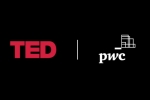
A case study on transforming reproductive health in Kenya
Helping the government transform reproductive health for poor mothers in rural Kenya
Situated on the Eastern coast of Africa, Kenya is known as the "cradle of humanity".1
Addressing challenges of poverty, inequality and low investment are a major goal for the country to achieve rapid, sustained growth rates that will transform the lives of its 45 million citizens.2 As a developing economy, the health system is under-financed; total health spending stands at about US$6.2 per capita, far short of the World Health Organisation’s (WHO) recommended level of US$34 per capita, and access to health and medical care is unequally distributed across the country.
1 http://www.brandkenya.go.ke/history-of-kenya/120-the-cradle-of-mankind
2 Worldbank Kenya overview 1 Oct 2015 - http://www.worldbank.org/en/country/kenya/overview
Overview
Almost 8,000 women die during pregnancy and childbirth in Kenya each year. Another 160,000 are either injured or disabled because they are unable to access quality healthcare.
Access to reproductive healthcare for women in rural areas is a significant challenge, and solving it is a high priority for the Kenyan government. In 2006, the Kenyan authorities introduced the Output Based Approach (OBA) to distribute vouchers for reproductive health services to poor mothers. Each voucher entitles the mother to obtain pre-natal surveys, medical support and delivery and post-natal treatment from a health service provider of her choice.


What did we do?
The Kenyan government engaged PwC Kenya to be the Voucher Management Agency for this breakthrough scheme. In this role, the PwC Kenya team is responsible for contracting Voucher Service Providers (VSPs) from the public, private and NGO sectors.
As well as designing the vouchers, PwC Kenya in 2015 has been developing and implementing a voucher marketing and distribution strategy, with much of this activity handled face to face with pregnant women in the five counties where the programme is implemented.
This involves providing information on the availability of services, and screening potential beneficiaries to confirm their eligibility. PwC also receives and processes claims submitted by the providers, reimburses for the services, contributes to quality monitoring, and provides critical data on services uptake.
What impact did we make?
Since the scheme’s introduction, over 500,000 needy women have delivered safely through the voucher scheme. And with the fund reimbursing facilities, providers are at last able to buy additional medical equipment and drugs, as well as hiring more staff. It’s a powerful illustration of the way in which competition between providers can result in friendlier treatment of patients and improved service.
















